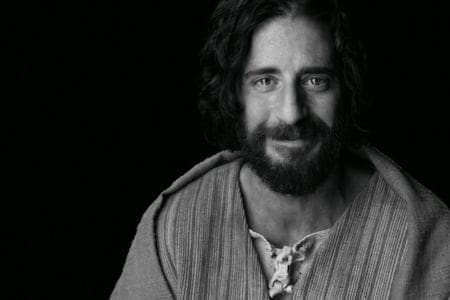
Explaining The Chosen: Season 3, Episode 1: Homecoming
In the first episode of Season 3, we get to know Judas Iscariot and see the Sermon on the Mount from the “inside.” We also meet Joanna, another of Jesus’s female followers. This episode is another touching and creative part of the story seen through the eyes of The Chosen series.
To see my previous articles Explaining The Chosen, find them here.
Sitting Shiva
Matthew’s father felt he had been betrayed by Matthew and declared he had no son. Matthew’s family acted as if Matthew had died when he suggested they sit Shiva for the next seven days.
Sitting Shiva is a beautiful Jewish custom where the family of the dead takes a seven-day break from work, other social interactions, etc., and spends time together. They gather in their own or the deceased’s home and mourn, heal, and remember the one they lost to this earthly life.
This healing custom is a healthy way to support those whose earthly lives have been drastically changed by losing a loved one. But in The Chosen, Matthew’s father used it to distance the family from Matthew because of his status as a tax collector for the Romans.
Judas of Kerioth
When Judas met Jesus, Jesus referred to him as Judas of Kerioth. But how do we know where Judas came from? It’s assumed he came from Kerioth because of his name: Judas Iscariot. Judas Iscariot is close to Judas Ish Kerioth, meaning “man from Kerioth.”
Jesus then comments on the meaning of Judas’s name. Judas is a Hellenized form of his Hebrew name, but he was probably known among Jesus and other Jews as “Yehudah.” In your Bible, “Yehudah” is perhaps written as “Judah,” and it was a common name in Jesus’s time.
Yehudah (יְהוּדָה) is a combination of the words Yah and Yadah. Yah is a name for God, used in many places in the Bible, and Yadah means to give praise, particularly with the hands, as Jesus points out in this scene. The word Yad means “hand.”
Aaronic Blessing
Before dismissing the disciples, Jesus prayed a blessing over them, and this blessing probably sounds familiar to you. From Numbers 6:22-27, the Aaronic Blessing (or Aaronic Benediction) goes like this.
The LORD make His face to shine upon you
(Ya’ayr Adonai panav ‘aylekha – יָאֵר יְיָ פָּנָין אֵלֶיךָ)
And be gracious unto you.
(Veekhoonekha; – וׅיחֻנֶּךָ׃)
The LORD lift up His countenance upon you
(Yeesa’ Adonai panav ‘aylekha – יׅשָּׂא יְיָ פָּנָיו אֵלֶיךָ)
And give you peace.
(V’yasaym l’kha shalom. – וְיָשֵׂם לְךָ שָׁלוֺם)
Joanna
After the disciples disperse, we meet Joanna, a wealthy woman out of her element but interested in Jesus. Not mentioned more than a couple of times in the Bible, Joanna was a follower of Jesus. We know that she was wealthy because Luke 8:3 tells us she was one of a group of women who contributed out of their own means.
The other thing we know about Joanna is that she was Herod’s steward, Chuza’s wife. The Bible doesn’t tell us what her husband thought of her visiting Jesus, but I’m guessing that may have been complicated! We also know she was one of the women who visited the tomb after Jesus’s resurrection, when the angel appeared and told them the good news, “He is not here. He has risen!”.
Joanna told the women that she was from Machaerus. Machaerus was the location of one of Herod’s palaces – where John the Baptist was beheaded at Herodius’s request.
The Mezuzah
I’ve explained the mezuzah in Explaining The Chosen, Season 1, Episodes 7 and 8, and Season 2, Episode 7. Four times in this episode, a character touches the mezuzah (the small box nailed to the doorpost). The first was Rabbi Yussif, as he walked into the room where he talked to Jairus, and later in this episode, as he left the same room. Then Judas touched the mezuzah in the doorway before leaving his house, then again after returning to retrieve his plant.
A mezuzah serves as a physical reminder of the words of the Shema (Deut. 6:4-9).
Hear, O Israel! The LORD is our God, the LORD is one! You shall love the LORD your God with all your heart and with all your soul and with all your might. These words, which I am commanding you today, shall be on your heart. You shall teach them diligently to your sons and shall talk of them when you sit in your house and when you walk by the way and when you lie down and when you rise up. You shall bind them as a sign on your hand and they shall be as frontals on your forehead. You shall write them on the doorposts of your house and on your gates.
Deuteronomy 6:4-9, (NASB)
The Shema is where we’re instructed to make God the center of our lives. We’re to teach His word to our children as we go about our day. His words should be bound to us and even be written on the doorposts of our houses. It teaches us what we’re supposed to be doing with our time on Earth and how to live as one of God’s people. We must love God with all we are and make sure His word saturates every area of our lives!
The Anointed One
When Judas was telling his plans to follow Jesus to his sister, Devorah, he called Jesus “the anointed one.” In Hebrew, “anointed one” is “mashiach” (מָשִׁיחַ) or “messiah.”
And a side note: Devorah, Judas’s sister’s name, “Deborah,” in English, means “bee,” as in the honey-making insect!
We got to know Judas and learned what the Sermon on the Mount may have been like for the disciples. And what an ending this episode had! Will Matthew reconcile with his father? We’ll find out in Episode 2!
Comments (7)
Leave a Reply Cancel reply
Search
Recent Comments
- Phumlani on The Old Testament vs. The Tanakh: What Every Christian Should Know
- Carol Godsey on A Very Basic Christian Passover Seder Guide
- Victoria on Finding a Messianic Haggadah for Your Christian Passover Seder
- Holy Branches on Havdalah: Separation Between the Holy and the Common
- Bonnie LaMalfa on Havdalah: Separation Between the Holy and the Common

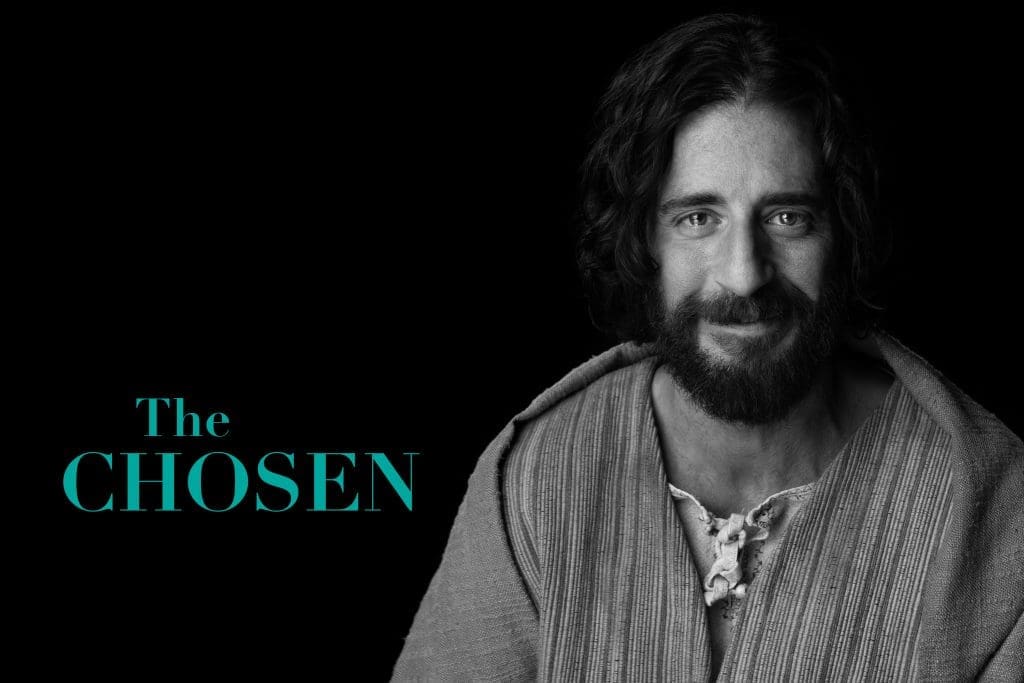
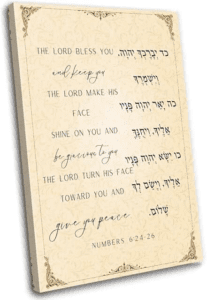
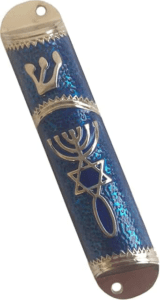
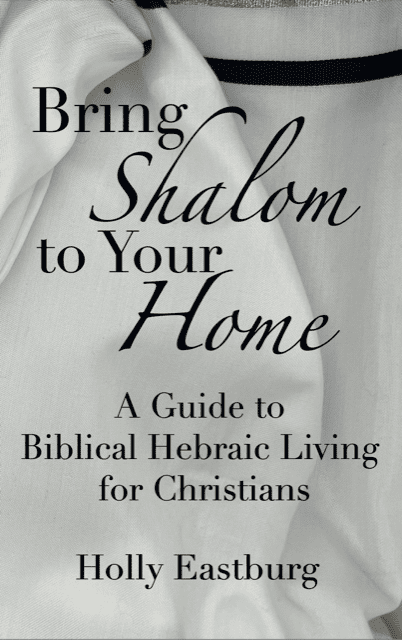

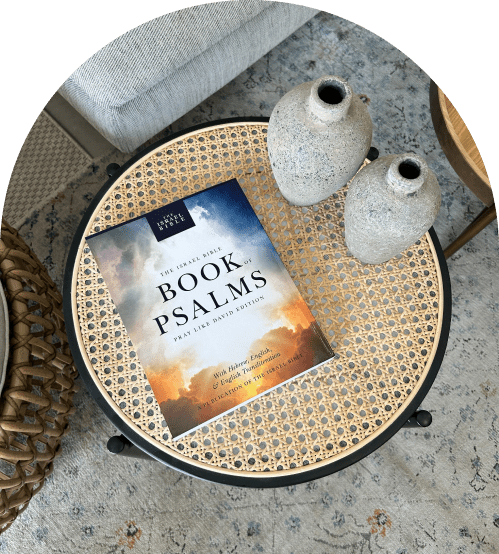
Hello! Have you finished Season 3? I love your commentaries. Thank you!
I’m glad you’re enjoying them. I intend to continue writing on The Chosen. If you would like to know when new articles come out, follow Hebrew Roots Mom on social media or sign up for the newsletter on the HebrewRootsMom.com homepage.
Thank you, I was short on words when explaining to a co worker why I keep Jewish holidays, but I’m not Jewish. I hate to overload with verbosity. So I can’t just send a link.
Shalom
Maybe you could explain that you are just doing what God said to do? That’s short and sweet.
I am so enjoying all of your explanations. They are much more in depth than the roundtable talks. I hope that you keep going, and that all is well for you and your family.
I can’t find Season 3. Is it available?
Not yet but I’m working on them! If you would like updates when new Chosen posts are out, you can follow Hebrew Roots Mom on social media or sign up for my newsletter on HebrewRootsMom.com.